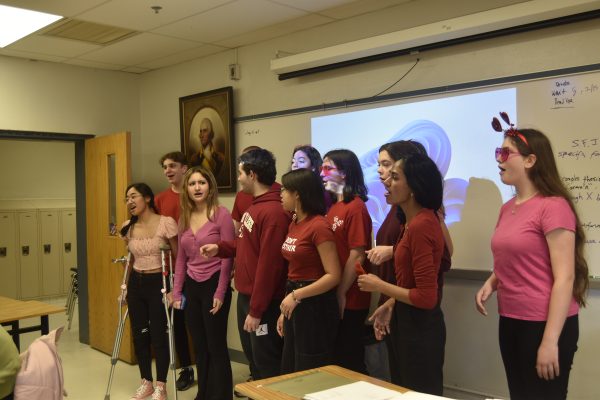How not to give in to Senioritis
Photo obtained via Creative Commons
The infamous senior slump
February 8, 2017
You have finally made it: Second Semester of your Senior year. After all the stories and the longing gazes you shot at Seniors as they basked in the uninhibited freedom of their near-adulthood, you are here. Yet, the daydream couldn’t last forever. Eventually you realized that Senior year isn’t just a time for adolescent carelessness as the amalgamation of impending deadlines and existentialism settled into the pit of your stomach. You also likely found the motivation that you’ve spent the last three years running on slowly slipping away from you.
You are not alone in this struggle. This phenomenon has a name – “Senioritis” – and it has been plaguing high school seniors for generations. Characterized by lethargy and a general unwillingness to maintain one’s work ethic, this issue often results in the drop in a student’s academic record, attendance, and relationships with teachers.
“Personally, I thought I wouldn’t get it because I’m a pretty hard worker, but it has gotten really bad since I got in to [college] in December…it’s especially affecting me now and will probably only get worse,” senior Dana Peters said.
Many a newspaper have written articles about the subject, giving students lists of ways they can manage this new wave of laziness. The issue is not one to be simply cast aside as another symptom of the transition from high school to higher education, nor will it be solved with trivial goals that will most likely end with empty promises and demoralization.
“I think that after first semester, students may feel less motivated to put as much effort into their school work. It can sometimes feel like work has become busy work. However, we still need to remember that these grades are important,” senior Katie Hoskins said.
The temptation to give in to one’s desire to slack is strong. College applications are done, and many students already know where they will be spending the next four years. That kind of thinking is very risky though. Colleges do look at final grades, and most will not hesitate to rescind acceptances to students whose academic records have significantly faltered. In a 2009 report of the National Association of College Admission Counseling (NACAC), 21 percent of colleges surveyed reported that they had revoked an offer of admission, with a mean of approximately 10 revoked offers per college. This is not just the case with public colleges, although public colleges have shown to be particularly willing to rescind acceptances with a drop in academic performance. According to the same 2009 report by the NACAC, 84 percent of public colleges reported failing grades as a reason for rescinding acceptances, while 49 percent of private institutions reported revoking acceptances due to academic difficulty.
Needless to say, no student should use the start of their second semester as a reason to give up on pursuing the academic goals that they have worked so hard to achieve in the last three years. This is a time to be running across the finish line, not crawling to the final mark long after the race has ended. So, with the help of College Board’s guide on how to manage Senioritis, here are concrete methods you can use to prevent yourself from succumbing to the seductive throws of Senioritis:
- Find a good workspace, where you are able to remain focused on and motivated to complete the tasks you have at hand. The library or your local coffee shop are always reliably solid work environments.
- Stay after school to do work or get help from your teachers, so you can stay on track with your tasks while getting the assistance that you need.
- Make a list of reasons why school matters to you, and then remind yourself of those reasons every time you feel yourself slipping in terms of motivation.
- Stay organized with a planner and calendar. It’s difficult to stay on top of the work you have when you are not even sure what work that is. Looking at a calendar will also allow you to see how much time you have until graduation (!!).
- Organize study groups with your peers (after you have studied by yourself), so that you can tackle the remaining challenges of your senior year together.












